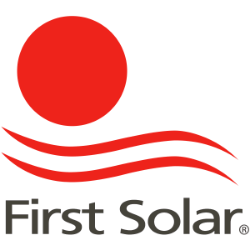
Key Points
- **First Solar** thrives despite high tariffs due to risk-sharing contracts and strategic import adjustments.
- **U.S.-based solar production** is growing rapidly as tariffs reshape the market landscape.
- **Ashtead Group** and **London Stock Exchange Group** demonstrate resilience through unique business models.
First Solar’s business model and financial health have positioned it to withstand the impact of tariffs on imported solar modules. The company imports modules from facilities in Vietnam, Malaysia, and India, facing tariffs ranging from 24% to 46%. Despite these challenges, First Solar’s contracts often include provisions for sharing tariff risks with buyers, reducing its exposure to sudden cost increases[1].
Additionally, First Solar’s flexibility in adjusting import sources has helped mitigate tariff impacts. For instance, the company plans to export more modules from India to the U.S., where tariffs are lower compared to Vietnam. This strategy could save approximately $30 million annually[1].
U.S. tariffs on solar imports aim to boost domestic manufacturing but have also led to significant disruptions. These measures have caused job losses and reduced investments in the sector. For example, tariffs imposed since 2017 have resulted in $19 billion in lost private investment and over 62,000 job losses[2].
Despite these challenges, U.S.-based solar production is growing rapidly. In 2023 alone, solar accounted for over half of new electricity generation capacity in the country[6]. This trend suggests that companies with domestic manufacturing capabilities, like First Solar, are well-positioned for long-term growth.
**Ashtead Group (ASH)**: Ashtead’s focus on cash retention and its limited exposure to import/export markets make it resilient to tariff-induced disruptions. The company benefits from structural tailwinds like government infrastructure initiatives and onshoring supply chains[4].
**London Stock Exchange Group (LSEG)**: LSEG thrives on its diverse revenue streams from financial data and analytics services rather than physical goods. A stronger U.S. dollar under tariff policies could further boost its earnings[4].
First Solar’s resilience amid tariffs highlights its strategic adaptability and strong fundamentals. While tariffs pose challenges across industries, they also create opportunities for companies with robust domestic operations or diversified revenue streams. Investors should keep an eye on stocks like First Solar, Ashtead Group, and London Stock Exchange Group as potential beneficiaries of these evolving trade policies.
Disclaimer
This article is for informational purposes only and should not be considered as financial advice.
Published: April 6, 2025
Last Updated: April 6, 2025
